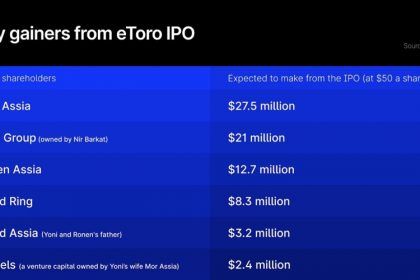Artificial Intelligence (AI) has significantly transformed various industries, with the financial technology (FinTech) sector being a notable beneficiary. The convergence of AI and FinTech has revolutionized how financial services are delivered and consumed. AI’s ability to analyze vast amounts of data and identify patterns has made it an invaluable tool for predicting market trends and enhancing investment decisions. This article explores the critical role AI plays in these areas and how it is shaping the future of FinTech.
The Evolution of AI in FinTech
Historical Perspective
The journey of AI in FinTech began with the automation of simple, repetitive tasks. Over the years, it has evolved to handle more complex functions, such as data analysis, risk management, and customer service. The integration of AI into financial systems has accelerated with advancements in machine learning, natural language processing, and big data analytics.
Current Trends
Today, AI is at the forefront of financial innovation. It powers everything from robo-advisors to fraud detection systems. The continuous improvement in AI algorithms and computing power has enabled financial institutions to leverage AI for more sophisticated applications, such as predictive analytics and personalized financial advice.
AI in Predicting Market Trends
Data Analysis and Pattern Recognition
AI’s strength lies in its ability to process and analyze large datasets at unprecedented speeds. This capability is particularly useful in predicting market trends. By examining historical data, AI can identify patterns and correlations that human analysts might miss. Machine learning models can then use these insights to forecast future market movements.
Real-Time Market Monitoring
In the fast-paced world of finance, staying updated with real-time information is crucial. AI systems can continuously monitor market conditions and provide instant analysis. This real-time monitoring allows investors to make informed decisions quickly, reducing the risk of missing out on lucrative opportunities.
Sentiment Analysis
Market trends are often influenced by public sentiment. AI-powered sentiment analysis tools can scan social media platforms, news articles, and other sources to gauge the general mood of the market. By understanding public sentiment, investors can anticipate market movements and adjust their strategies accordingly.
Enhancing Investment Decisions with AI
Personalized Financial Advice
One of the most significant benefits of AI in FinTech is its ability to offer personalized financial advice. AI-driven platforms can analyze an individual’s financial situation, goals, and risk tolerance to provide tailored investment recommendations. This personalized approach helps investors make more informed decisions, leading to better financial outcomes.
Portfolio Management
AI has also revolutionized portfolio management. Robo-advisors, which are AI-powered platforms, can create and manage investment portfolios based on an investor’s preferences and risk profile. These platforms continuously monitor and rebalance portfolios to ensure optimal performance, freeing investors from the need to manage their investments actively.
Risk Assessment and Management
Risk management is a critical aspect of investing. AI can enhance risk assessment by analyzing a wide range of factors, including market volatility, economic indicators, and geopolitical events. AI models can predict potential risks and suggest strategies to mitigate them. This proactive approach helps investors protect their assets and maximize returns.
AI-Driven Trading Strategies
Algorithmic Trading
Algorithmic trading, also known as algo-trading, uses AI algorithms to execute trades at high speeds. These algorithms analyze market data and execute trades based on predefined criteria. AI-driven trading strategies can capitalize on short-term market fluctuations, increasing the chances of profitable trades.
High-Frequency Trading
High-frequency trading (HFT) is a subset of algorithmic trading that involves executing a large number of orders in fractions of a second. AI’s ability to process vast amounts of data quickly makes it ideal for HFT. By identifying minute price discrepancies across different markets, AI can execute trades that generate profits within seconds.
Predictive Analytics
Predictive analytics involves using historical data to forecast future events. In trading, AI can analyze past market behavior to predict future price movements. These predictions enable traders to develop strategies that anticipate market trends, giving them a competitive edge.
AI and Fraud Detection
Identifying Unusual Patterns
Fraud is a significant concern in the financial industry. AI can help detect fraudulent activities by identifying unusual patterns in transactions. Machine learning models can learn from historical data to recognize suspicious behavior, allowing financial institutions to intervene before significant losses occur.
Real-Time Fraud Detection
AI systems can monitor transactions in real-time, flagging potentially fraudulent activities instantly. This real-time detection is crucial in preventing fraud, as it allows for immediate action. By reducing the time between the detection and response, AI helps minimize the impact of fraudulent activities.
Enhancing Security Measures
In addition to detecting fraud, AI can enhance overall security measures. AI-driven systems can identify vulnerabilities in financial networks and suggest improvements. By continuously evolving to address new threats, AI helps financial institutions stay ahead of cybercriminals.
The Future of AI in FinTech
Continuous Learning and Improvement
AI’s ability to learn and improve over time is one of its most significant advantages. As AI systems process more data, they become better at identifying patterns and making accurate predictions. This continuous learning ensures that AI will remain a vital tool in FinTech, adapting to new challenges and opportunities.
Ethical Considerations
While AI offers numerous benefits, it also raises ethical considerations. Issues such as data privacy, algorithmic bias, and transparency need to be addressed. Financial institutions must ensure that their AI systems are used responsibly and ethically to maintain trust with their customers.
Collaboration Between Humans and AI
The future of AI in FinTech will likely involve a collaborative approach. While AI excels at data analysis and pattern recognition, human judgment is still crucial in decision-making. By combining the strengths of AI and human expertise, financial institutions can achieve better outcomes and drive innovation in the industry.
Conclusion
Artificial Intelligence has become an indispensable tool in the FinTech industry. Its ability to predict market trends and enhance investment decisions has transformed how financial services are delivered and consumed. As AI continues to evolve, it will unlock new possibilities for innovation and growth. However, it is essential to address ethical considerations and foster collaboration between humans and AI to ensure a sustainable and prosperous future for the financial sector. The integration of AI in FinTech promises to create a more efficient, secure, and personalized financial landscape for all.







